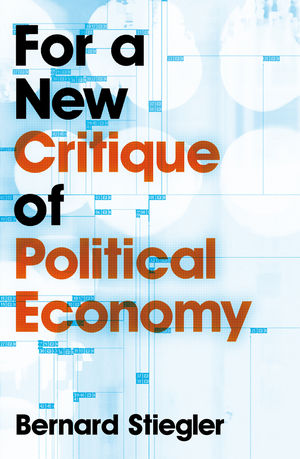Peter Lunenfeld: The Secret War Between Downloading and Uploading: Tales of the Computer as Culture Machine (2011)
Filed under book | Tags: · blogging, computing, consumption, copyright, cultural production, culture machine, internet, networks, participation, simulation, technology, television, unimodernism, web, web 2.0

“The computer, writes Peter Lunenfeld, is the twenty-first century’s culture machine. It is a dream device, serving as the mode of production, the means of distribution, and the site of reception. We haven’t quite achieved the flying cars and robot butlers of futurist fantasies, but we do have a machine that can function as a typewriter and a printing press, a paintbrush and a gallery, a piano and a radio, the mail as well as the mail carrier. But, warns Lunenfeld, we should temper our celebration with caution; we are engaged in a secret war between downloading and uploading–between passive consumption and active creation–and the outcome will shape our collective futures.
In The Secret War Between Downloading and Uploading, Lunenfeld makes his case for using digital technologies to shift us from a consumption to a production model. He describes television as “the high fructose corn syrup of the imagination” and worries that it can cause “cultural diabetes”; prescribes mindful downloading, meaningful uploading, and “info-triage” as cures; and offers tips for crafting “bespoke futures” in what he terms the era of “Web n.0″ (interconnectivity to the nth power). He also offers a stand-alone genealogy of digital visionaries, distilling a history of the culture machine that runs from the Patriarchs (Vannevar Bush’s WWII generation) to the Hustlers (Bill Gates and Steve Jobs) to the Searchers (Larry Page and Sergey Brin of Google fame). After half a century of television-conditioned consumption/downloading, Lunenfeld tells us, we now find ourselves with a vast new infrastructure for uploading. We simply need to find the will to make the best of it.”
Publisher MIT Press, 2011
ISBN 0262015471, 9780262015479
219 pages
Review: Jan Baetens (Leonardo Reviews, 2011).
PDF (updated on 2019-11-20)
Comment (0)Bernard Stiegler: For a New Critique of Political Economy (2010)
Filed under book | Tags: · consumption, critique, economy, labour, marxism, philosophy, political economy, politics, society, technics

“The catastrophic economic, social and political crisis of our time calls for a new and original critique of political economy – a rethinking of Marx’s project in the very different conditions of twenty-first century capitalism.
Stiegler argues that today the proletarian must be reconceptualized as the economic agent whose knowledge and memory are confiscated by machines. This new sense of the term ‘proletarian’ is best understood by reference to Plato’s critique of exteriorized memory. By bringing together Plato and Marx, Stiegler can show how a generalized proletarianization now encompasses not only the muscular system, as Marx saw it, but also the nervous system of the so-called creative workers in the information industries. The proletarians of the former are deprived of their practical know-how, whereas the latter are shorn of their theoretical practice, and both suffer from a confiscation of the very possibility of a genuine art of living.
But the mechanisms at work in this new and accentuated form of proletarianization are the very mechanisms that may spur a reversal of the process. Such a reversal would imply a crucial distinction between one’s life work, originating in otium (leisure devoted to the techniques of the self), and the job, consisting in a negotium (the negotiation and calculation, increasingly restricted to short-term expectations), leading to the necessity of a new conception of economic value.
This short text offers an excellent introduction to Stiegler’s work while at the same time representing a political call to arms in the face of a deepening economic and social crisis.”
Publisher Polity, 2010
ISBN 0745648045, 9780745648040
100 pages
PDF (updated on 2020-8-7)
Comment (0)Herbert Marcuse: One-Dimensional Man: Studies in the Ideology of Advanced Industrial Society (1964–) [EN, ES, GR, TR, CZ, AL]
Filed under book | Tags: · alienation, consumption, critique, culture, Frankfurt school, ideology, philosophy, popular culture

“One of the most important texts of modern times, Herbert Marcuses analysis and image of a one-dimensional man in a one-dimensional society has shaped many young radicals ways of seeing and experiencing life. Published in 1964, it fast became an ideological bible for the emergent New Left. As Douglas Kellner notes in his introduction, Marcuses greatest work was a damning indictment of contemporary Western societies, capitalist and communist. Yet it also expressed the hopes of a radical philosopher that human freedom and happiness could be greatly expanded beyond the regimented thought and behaviour prevalent in the established society. For those who held the reins of power Marcuses call to arms threatened civilization to its very core. For many others, however, it represented a freedom hitherto unimaginable.”
First edition published by Routledge & Kegan Paul, 1964
Second edition by Routledge, 1991
ISBN 9780415289764
275 pages
One-Dimensional Man (English, 2nd ed., 1964/1991, 11 MB, updated on 2016-12-23)
El Hombre unidimensional (Spanish, trans. Antonio Elorza, 1965/1993, added on 2014-6-7)
Ο μονοδιάστατος άνθρωπος (Greek, trans. Μπάμπης Λυκούδης, 1971, added on 2014-6-7)
Tek-Boyutlu Insan (Turkish, trans. Aziz Yardimli, 1986, HTML, added on 2014-6-7)
Jednorozměrný člověk (Czech, trans. Miroslav Rýdl, 1991, added on 2014-6-11)
Njeriu njëdimensional (Albanian, trans. Gaqo Karakshi, 2006, added on 2014-6-7)

